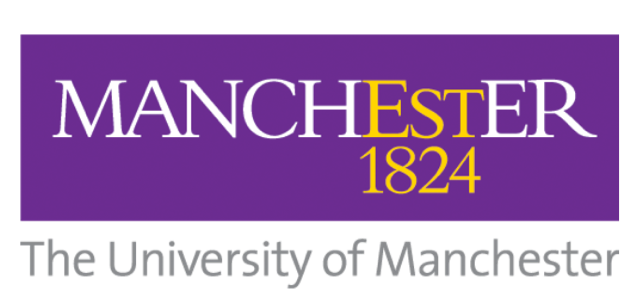
The University of Manchester
Much has been done to study COVID-19 and address the urgent needs in various areas. At the centre of it all are the academic institutions that refuse to shy away from the difficulties posed by this pandemic. The University of Manchester has made its equal share of contribution in several ways.
Transforming human genomic testing laboratories for COVID-19 testing

Testing for COVID-19 has never been more urgently needed. Hence, a genetic testing team from Saint Mary’s Hospital, which is part of Manchester University NHS Foundation Trust, has been looking to adapt lab space and mobilise an adequately sized workforce to accelerate testing in the northwest.
The team of Professor Graeme Black, a clinical professor in the Faculty of Biology, Medicine, and Health and the scientific director of the North West Genomic Laboratory Hub, typically tests for rare diseases, cancer and haematology. Following the global COVID-19 outbreak, the team is now collaborating with Public Health England with the goal of adapting their expertise and lab equipment to support coronavirus testing. With the expertise of more than 250 people from the University and NHS clinicians and laboratory staff, the interdisciplinary team are hoping to boost the number of tests available and ease bottlenecks.
Accelerating clinical trials

As part of the One Greater Manchester partnership, scientists at The University of Manchester are helping to coordinate a growing, national effort to accelerate clinical trials for intensive and critical care patients linked to COVID-19.
Under the coordination of the research teams of Professor Paul Dark and Dr Timothy Felton, the clinical trials are aimed at aiding, underpinning and developing new vaccine research. The teams are in search of new therapies that are currently unproven to work on a virus like COVID-19 but could prove to be a vital and effective treatment. These treatments range from HIV antiretrovirals and anti-inflammatory agents to immunophenotyping.
Helping the most vulnerable

Social care systems around the world have been struggling to cope with the COVID-19, and workers at the frontlines continue to face exposure to the virus. End-of-life care has also emerged as a central issue. Addressing these myriad of topics is the goal of Professor Arpana Verma and her team. As head of the Division of Population Health, Health Services Research and Primary Care in The University of Manchester’s Faculty of Medicine, Biology and Health, Professor Arpana Verma has collaborated with her colleagues across the University, Greater Manchester healthcare bodies and researchers from the University of Salford and Manchester Metropolitan University to determine a set of evidence-based interventions that will protect the elderly and vulnerable population, as well as the social care workforce, during the COVID-19 outbreak. This expansive team also intends to connect their work with the Advanced Care Plans of the Manchester Institute for Collaborative Research on Ageing to plan and record decisions about future care. All these efforts should provide a platform in which end-of-life care can be openly and clearly discussed.
Forming a rapid response research group

Given the urgent need for comprehensive research into COVID-19, researchers from the University of Manchester, along with clinicians from Manchester University NHS Foundation Trust and the Northern Care Alliance NHS Group (MFT), have heeded the call for the formation of a rapid response research group.
This project is supported by Health Innovation Manchester (HInM), NIHR Manchester Biomedical Research Centre (BRC) and NIHR Manchester Clinical Research Facility (CRF). Under the leadership of Professor Ian Bruce, director of the BRC, academic director of HInM and a professor of rheumatology at MFT’s Kellgren Centre, this unique group is targeting several objectives that could lead to solutions and an in-depth understanding of COVID-19. These objectives include new treatments; understanding of disease mechanisms; use of data science, mathematics and computer modelling to identify and track patients with symptoms; reduction of the impact of the virus on public health and on patients with existing health conditions; speeding up of diagnosis and testing; and prevention/vaccination. Realising these targets entails a wide array of steps and involves key experts, and the results could help scientific communities and healthcare institutions in tackling the pandemic and its long-term impact.
The group has also established a media response team that comprises scientists and clinicians who are tasked to deliver timely and accurate information to journalists and the general public.
